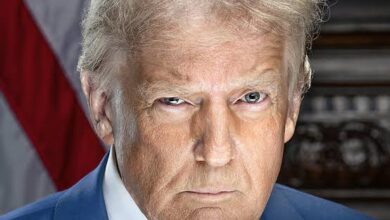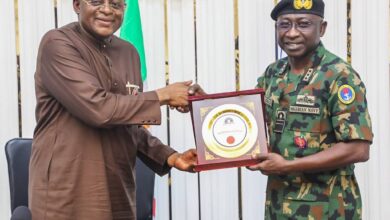
After a hours of a bilateral meeting in Lagos between The Nigeria Customs Service (NCS) and Manufacturers Association of Nigeria(MAN) on Friday,the NCS announced exemption for spare parts of commercial airlines operators, importers of raw materials, and Government projects from payment of the 4 per cent Free On Board (FOB).
This was disclosed by the Comptroller General of Customs, Bashir Adewale Adeniyi as contained in a jointly signed statement after a consultative meeting by both organisations
According to the Customs CG, goods imported for Humanitarian, Life Saving and other related purposes, as well as beneficiaries of the Presidential Initiative for unlocking Healthcare value chain, were also exempted from the payment.
The Customs boss stated that after consultations with the Minister of Finance and the Coordinating Minister of the Economy, approval has been given granted for what he described as strategic exemptions from the 4% FOB charges.
“Importation of raw materials, spares, and machines by the manufacturers who are beneficiaries of concessions contained in Chapters 98 and 99 of the Customs Tariff. Manufacturers who are currently on chapters 98 and 99 are advised to apply for pre-release of the consignment to avoid payment of demurrage.
“Members of MAN who import raw materials, machinery, and spares that are not currently on chapters 98 and 99 to be onboarded to enjoy the exemptions provided in 5(i) above. MAN, NCS, and the Federal Ministry of Finance will work together for the inclusion of manufacturers that are currently not in chapters 98 and 99.
“An immediate tripartite consultation of the Federal Ministry of Finance, NCS, and MAN would be held immediately to work out the modalities for expedited onboarding of manufacturers on chapters 98 and 99.”
JournalNG reports that the Customs boss had stated that manufacturers who are yet to be onboarded to chapters 98 and 99 will be held as credit and be utilised for future customs-related transactions after their onboarding.
“In the meantime, the 4% FOB payments already made by manufacturers who are yet to be onboarded to chapters 98 and 99 will be held as credit and be utilised for future customs-related transactions after their onboarding. Government projects with Import Duty Exemptions Certificates.
“Goods imported for Humanitarian, Life Saving and other related purposes, Beneficiaries of the Presidential Initiative for unlocking Healthcare value chain and Commercial airlines’ spare parts.”
Adeniyi further stated that beyond the exemptions, discussions with the Manufacturers also focused on additional trade facilitation initiatives such as one-stop shop frameworks designed to streamline regulatory processes.
Others are the elimination of bureaucratic bottlenecks, systematic reduction of unnecessary checkpoints that add costs without corresponding value and integration of digital solutions to accelerate legitimate trade.
“Beyond existing exemptions, discussions focused on additional trade facilitation initiatives being implemented by the Nigeria Customs Service to support manufacturing operations. These include the development of one-stop shop frameworks designed to streamline regulatory processes and eliminate bureaucratic bottlenecks, systematic reduction of unnecessary checkpoints that add costs without corresponding value, and integration of digital solutions to accelerate legitimate trade processing as well as maintain security standards.
“The Service also outlined initiatives aimed at providing real-time clearance capabilities and automated risk assessment systems that reduce compliance costs for legitimate operators.
“Both organisations agreed to establish formal consultation mechanisms ensuring regular dialogue on policy developments affecting manufacturing operations, including proactive engagement on customs policy changes before implementation, feedback systems allowing real-time assessment of policy impacts, and periodic review meetings to assess progress and identify new collaboration opportunities
“The engagement emphasised economic impact considerations, with both organisations committed to supporting Nigeria’s economic diversification objectives through job creation, export promotion, foreign exchange conservation through import substitution, and development of industrial clusters supported by predictable customs environments. Technology partnerships were also identified as critical enablers.”












One Comment